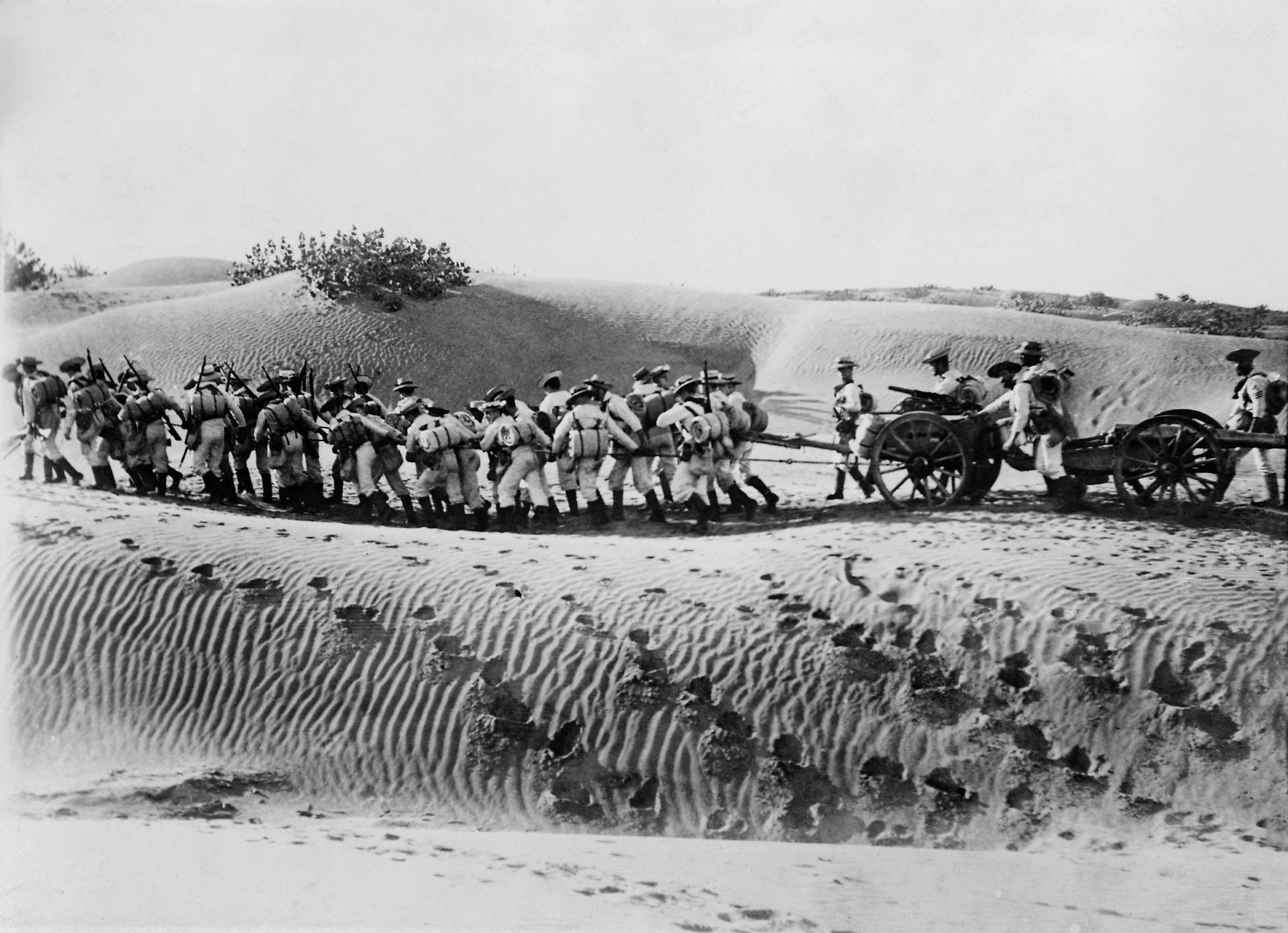
The Impact of World War One on the Israel-Palestine Conflict
Arguably, the most intractable conflict of the past 100 years has been between Israel and Palestine. Therefore, it is necessary to understand this conflict in its totality for there to be any chance of a resolution. Many events in the 20th and 21st centuries have fundamentally shaped Israel-Palestine. However, perhaps none were more important than the First World War.
Background
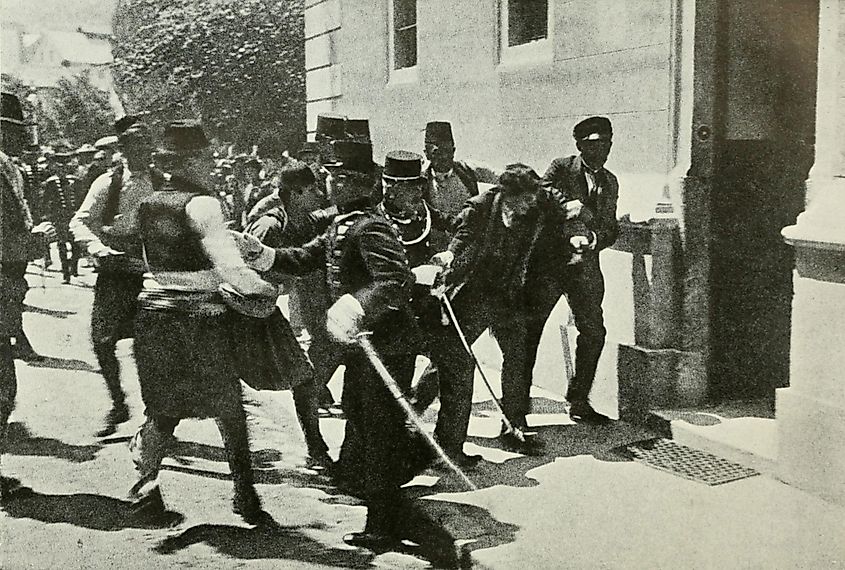
World War One began on June 28th, 1914, when Gavrilo Principe, a Serbian nationalist, assassinated Archduke of Austria-Hungary Franz Ferdinand. This event set off a chain reaction in which the major alliances of Europe all went to war, with France, the United Kingdom (UK), and Russia on one side and Germany, Austria-Hungary, and the Ottoman Empire on the other side. After over four years of fighting, which was characterized by trench warfare in which young men and boys were massacred trying to advance mere hundreds of meters, the war ended on November 11th, 1918, when Germany and the Allies signed an armistice. The deadliest conflict in world history up to that point, about 20 million people died, and an additional 21 million were injured.
The Middle East in World War One
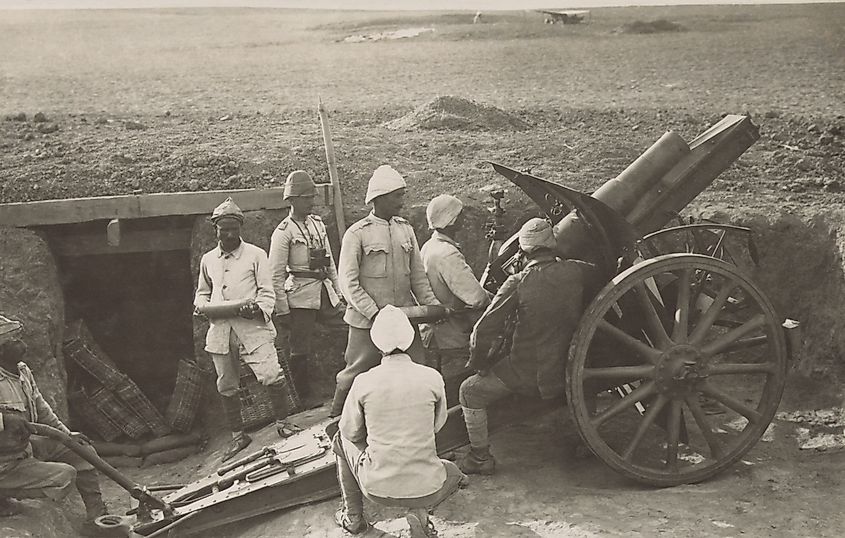
The Middle-Eastern front in World War One consisted of four distinct fronts, with the Ottomans fighting the Allies in southern Mesopotamia, southern Palestine, the Caucasus, and Gallipoli. Ottoman troops fought well in these regions, even beating back the Allies in Gallipoli and southern Mesopotamia in early 1915 and April 1916, respectively. Nonetheless, the British managed to traverse the Sinai Peninsula before taking southern Palestine, followed by Jerusalem in December 1917. Thereafter, they quickly moved up the coast, with the Ottoman Empire eventually being defeated by October 1918. To achieve this victory, the British government made several promises to different groups, all of which involved Palestine. These promises were contradictory and mutually exclusive, paving the way for seemingly inevitable conflict.
British Promises
The McMahon-Hussein Correspondence
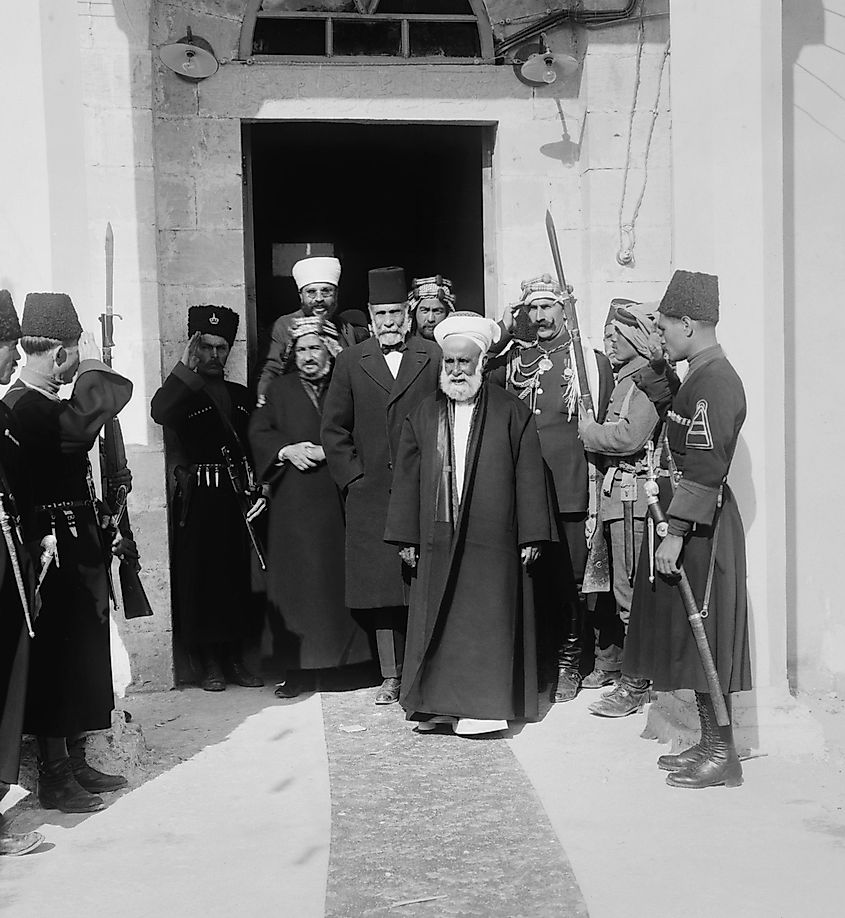
The first set of promises was made by the British government to Sharif Hussein, the leader of the Arab Revolt against the Ottoman Empire during World War I. These promises were formally articulated in a letter from British diplomat Henry McMahon to Hussein on October 24th, 1915.
In it, McMahon promised that the British would help Hussein establish an independent Arab kingdom if he revolted against the Ottomans. But, crucially, the letter said that "the districts of Mersina and Alexandretta, and portions of Syria lying to the west of the districts of Damascus, Homs, Hama, and Aleppo, cannot be said to be purely Arab, and must on that account be excepted from the proposed limits and boundaries." Due to this sentence, the British believed that they had not promised Palestine to the Arabs, with Palestine supposedly being west of these "districts." McMahon further confirmed this interpretation, as he did not explicitly mention Palestine as part of Hussein's future kingdom.
However, in the Ottoman Empire, district meant vilayet (the rough equivalent of a state or a province), and while there were vilayets in Damascus and Aleppo, there were no such equivalents for Homs and Hama. Furthermore, even if there were vilayets with these names, the portions of Syria left of these regions were part of Lebanon, not Palestine. In other words, the British, through either sloppy or deceitful language, had, by omission, effectively promised Palestine as part of this new Arab Kingdom.
The Sykes-Picot Agreement
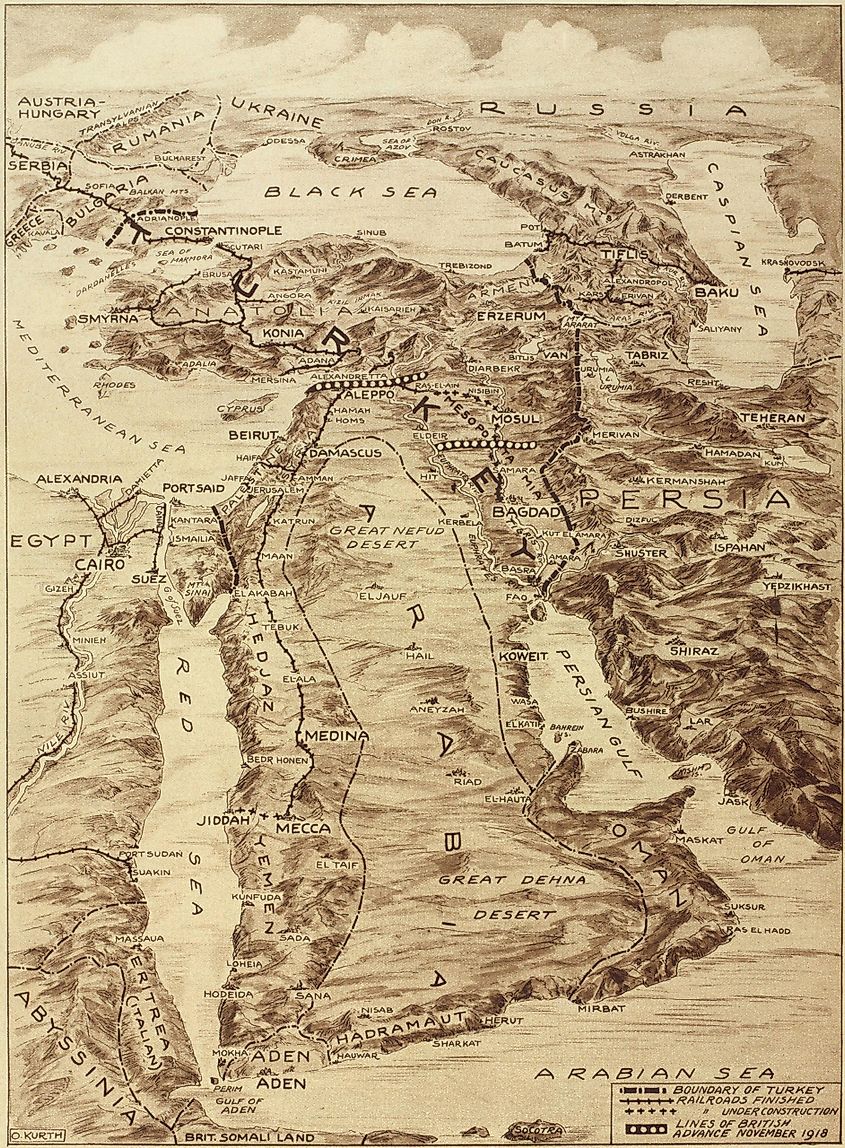
These "accidental" promises to the Arabs conflicted with other guarantees. For instance, the Sykes-Picot Agreement (1916) was a treaty between the UK and France concerning control of former Ottoman territories after the war. According to the agreement, the French were to receive Lebanon and Syria, whereas the British were to control southern Iraq and Jordan. It was also agreed that Palestine would come under international control but with some French influence. This, therefore, conflicted with the implicit promises of the Hussein-McMahon Correspondence. Moreover, it directly contradicted the forthcoming Balfour Declaration.
The Balfour Declaration
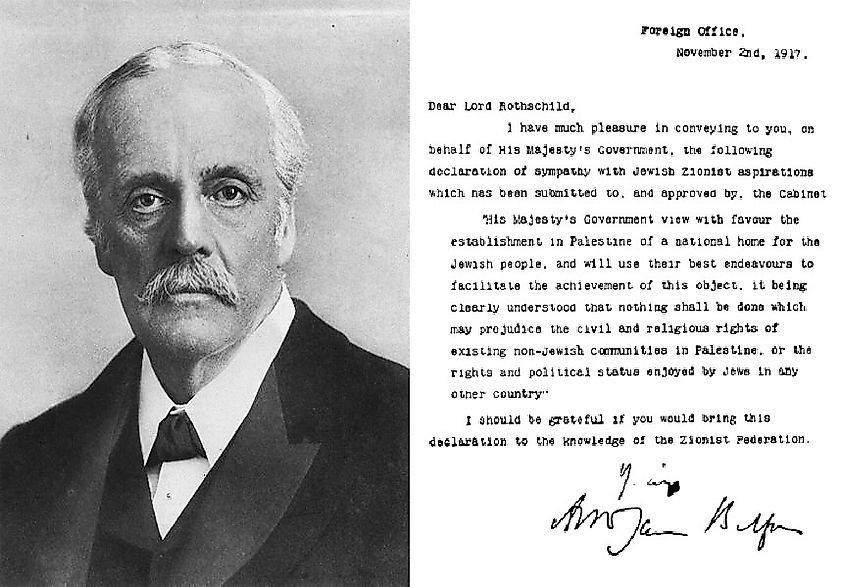
The Balfour Declaration was issued by the British government in November 1917. It conveyed the UK's intention to help "(establish) in Palestine...a national home for the Jewish people". The British did this for several reasons. First, they hoped it would rally Jewish support for the Allies. There were also some romantic ideas, rooted in Christianity, about Jews returning to the Holy Land. Antisemitism was also a motivating factor, with some British politicians believing that promising a national home to Jews would help remove their presence from the UK.
Finally, the Balfour Declaration offered a reason for the British to renege on the promise to give the French influence in the region. However, the specific wording of the Balfour Declaration was crucial. The British never promised a Jewish state in Palestine, only a "national home." What this meant was incredibly vague. Moreover, what it meant to "facilitate the establishment" of this national home was also conspicuously unclear. When combined with all the other guarantees the British had made, this vague language was a recipe for confusion and anger.
Aftermath
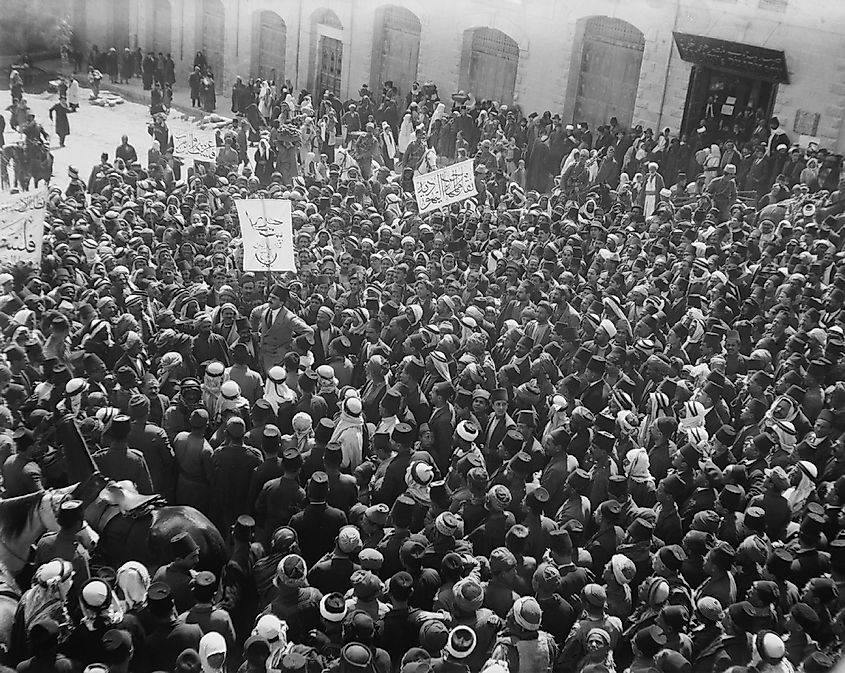
As World War I ended, American President Woodrow Wilson's 14 points, which preached the value of self-determination, were rising in popularity. However, these notions were built on assumptions about which nations were "ready" for independence- most of which were European. For non-European nations, the mandate system was created, in which European powers helped "guide" these soon-to-be states towards independence.
Thus, as the Ottoman Empire collapsed, the non-Anatolian regions of the former empire came under the control of France and the UK. France received Syria and Lebanon, whereas the British received Iraq, Jordan, and Palestine. This meant that the British were now legally required to fulfill the promises of the Balfour Declaration. The subsequent mandate period was full of tumult and unrest, and when combined with lingering anger from the other promises of World War One, which were now broken, set the stage for decades of conflict in the region.
Final Thoughts
In conclusion, World War I fundamentally shaped Israel-Palestine. Indeed, as the British desperately tried to win the war, they promised Palestine to several different groups. When the war ended, they were tasked with governing Palestine while also dealing with the ramifications of these promises, many of which were now broken. This provided a fertile ground for a seemingly intractable conflict to emerge.











